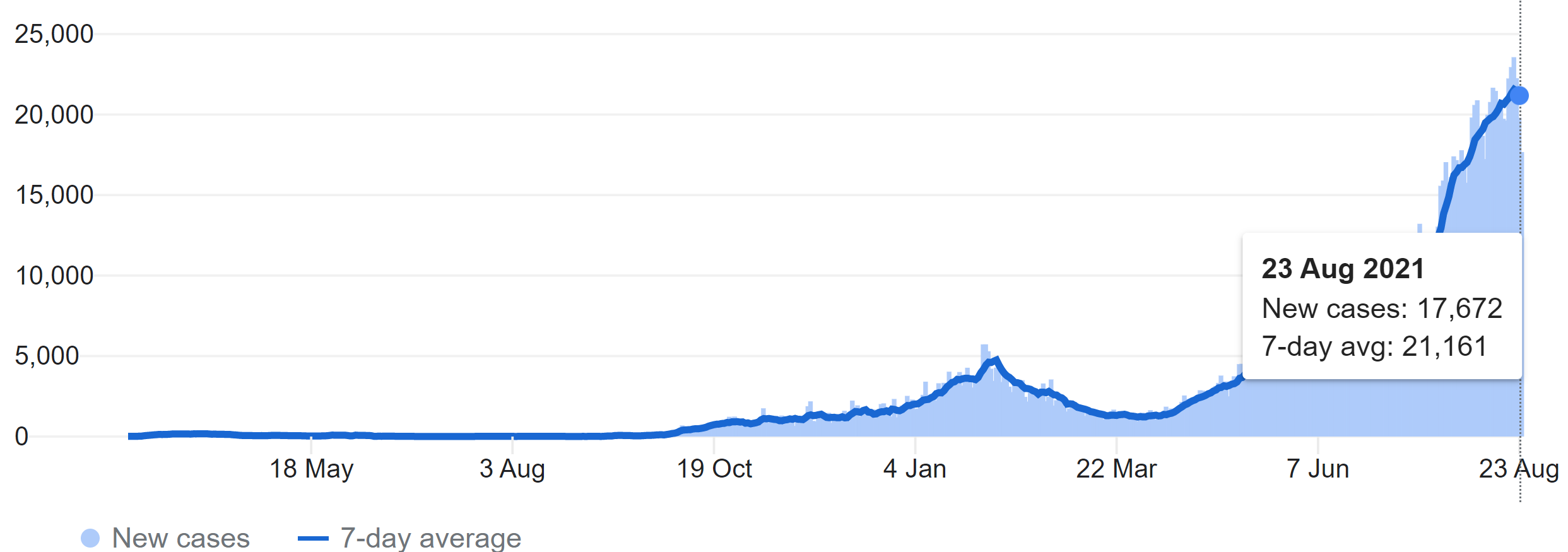In brief: A surge in Covid-19 cases in Malaysia could worsen the global chip shortage, with three key suppliers in the country heavily impacted by rising infection rates. The situation might result in lockdowns being extended and reduced manufacturing capabilities at the plants.
Bloomberg reports that Infineon Technologies AG, NXP Semiconductors NV, and STMicroelectronics NV are all feeling the pressure of Malaysia's increase in Covid cases---spurred by the Delta variant---which has seen the seven-day average jump from 5,000 in June to beyond 20,000
Official guidelines in Malaysia state that factories have to close down for up to two weeks if more than three employees test positive for Covid-19. Infineon and STMicroelectronics recently shut down or reduced production at some of their facilities due to the coronavirus.
In an attempt to mitigate the damage to the country's economy, companies were allowed to keep operating with 60% of their workforces during June lockdowns, and they'll be able to move back to 100% when more than 80% of their workers are fully vaccinated.
While Malaysia doesn't hold the same importance in the semiconductor chain as Taiwan or South Korea, it is a significant location for chip testing and packaging. The processes are less automated than wafer fabrication, relying more on the human workforce. Electronics and electrical products account for 39% of the country's total exports, according to data from the Ministry of Trade and Industry.
Infineon said the shutdown had impacted the company to the tune of "high double-digit" millions of euros, and STMicro admitted that a recent 11-day shutdown would diminish the company's ability to serve customers.

How much this will affect the current graphics card shortage is unclear. Nvidia CEO Jensen Huang recently said the supply issues would last "the vast majority" of 2022. The availability problems have led to companies relaunching older cards; Asus recently dropped the GeForce GT 730, part of the 700 series that first arrived in 2013.

